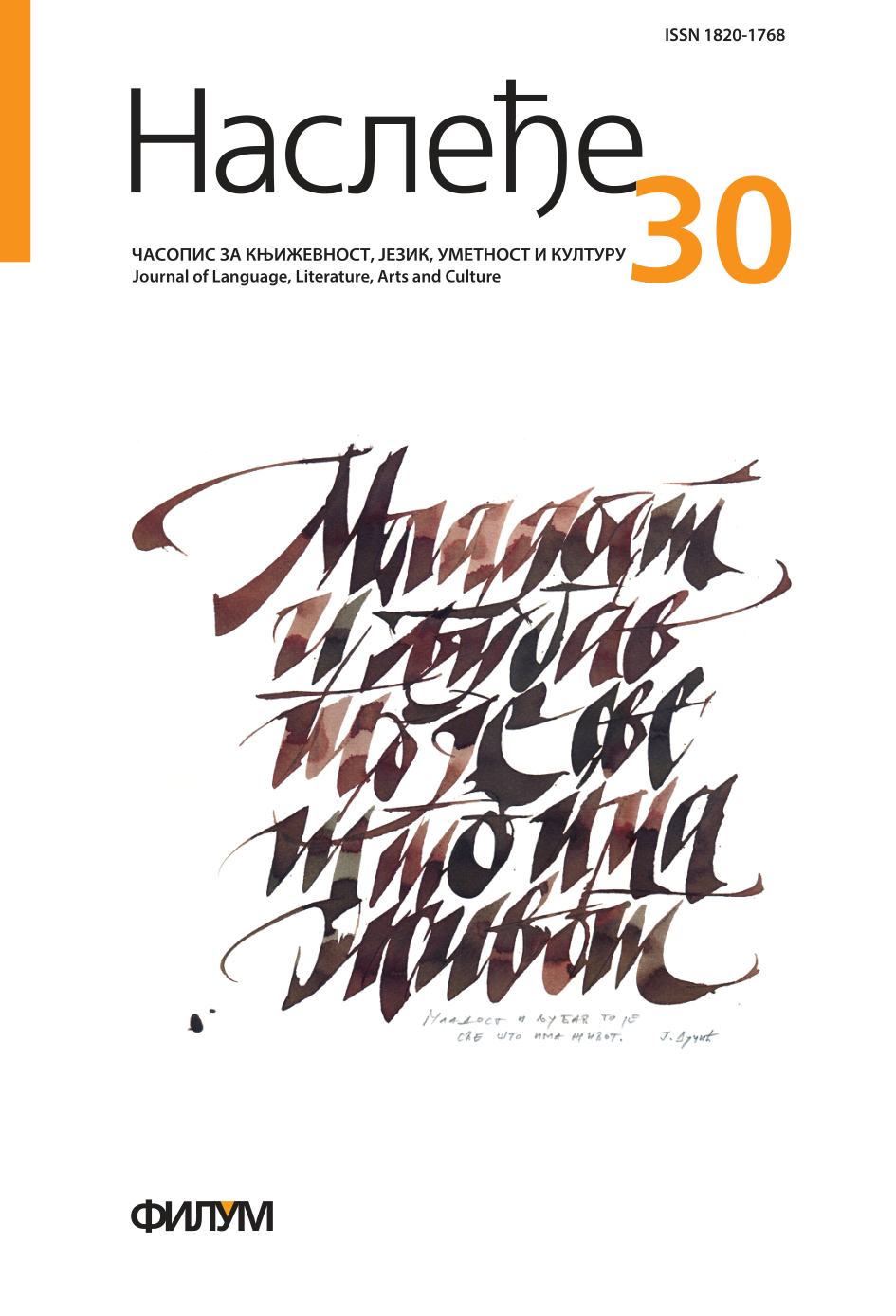THE POSITION OF A NON-NATIVE SPEAKER IN FOREIGN LANGUAGE TEACHING
Keywords:
native speaker, non-native speaker, foreign language teachingAbstract
The English language is the linguistic code of the modern world. As a means of international communication in the globalized world, English is increasingly becoming the property of anyone who is using it (Widdowson 1994). Concurrently, and as a direct consequence of this process, the glottodidactics of the 20th century saw the rise of criticism directed at the traditional, almost axiomatic position on the native speaker’s supremacy in foreign language teaching, which Philipson (1996) termed ‘the native speaker fallacy’. Nevertheless, even today, the vast majority of English teachers - approximately 80% according to Oxford (2010) - remain invisible to the theory of language teaching. Therefore, the aim of this paper is to reassess the role of non-native language instructors and draw attention to some of their assets, especially those pertinent to homogeneous groups of language learners sharing the same mother tongue. Given that we strongly believe not only that non-native speakers are not per se inferior in language teaching, but also that the knowledge of a foreign language does not automatically qualify one as a teacher (Medgyes 1994), in this paper we will re-evaluate the dominant traits of both native and non-native speakers teaching English. Additionally, we will present the results of a study conducted with the students of the English language and literature program at the Faculty of Philology and Arts in Kragujevac in 2013. This study was designed with a view to investigating the students’ beliefs about (non-)native English-speaking teachers.
References
Аrva, Мeđes 2000: V. Arva, P. Medgyes, Native and non-native teachers in the classroom, System, 28(3), 355-372.
Benke, Međes 2005: E. Benke, P. Medgyes, Differences in Teaching Behaviour Between Native and Non-Native Speaker Teachers: As Seen by the Learners, in E. Llurda (Ed). Non-native language teachers. New York: Springer, 195-217.
Blok, Kameron 2002: D. Block, D. Cameron, Introduction, in D. Block, D. Cameron (Eds.), Globalization and Language Teaching, London and New York: Routledge, 1-11.
Vidouson 1994: H. Widdowson, The ownership of English, TESOL Quarterly, 28(2), 377-388.
Voters 1995: М. Waters, Globalization, London: Routledge.
Gidens 1990: А. Giddens, The Consequences of Modernity, Cambridge: Polity Press.
Elis i dr. 2006: R. Ellis, S. Loewen, R. Erlam, Implicit and explicit corrective feedback and the acquisition of L2 grammar, Studies in Second Language Acquisition, 28, 339-368.
Kanagaradža 2002: A. S. Canagarajah, Globalization, methods and practice in periphery classroom, in D. Block, D. Cameron (Eds.), Globalization and Language Teaching, London and New York: Routledge, 134-151.
Kačru 1994: B. B. Kachru, The Speaking Tree: A medium of plural canons, in J. E. Alatis (Ed.), Educational linguistics, crosscultural linguistics, and global interdependence, Washington, D. C.: Georgetown University Press, 6-22.
Kačru 1995: B. B. Kachru, Teaching world Englishes without myths, in S. K. Gill (Ed.), Proceedings of the International English Language Education Conference, National and international challenges and responses, Bangi: Pusat Bahasa Universiti Kebangsaan Malaysia, 1-19.
Kuk 2005: V. Cook, Basing teaching on the L2 user, in E. Llurda (Ed.), Non-Native Language Teachers, New York: Springer, 47-63.
Lasagabaster, Manuel-Sijera 2005: D. Lasagabaster, J. Manuel-Sierra, What do students think about the pros and cons of having a native speaker teacher? In E. Llurda (Ed.), Non-Native Language Teachers, New York: Springer, 217-241.
Malok 2010: B. Mullock, Does a good language teacher have to be a native speaker? In A. Mahboob (Ed.), The NNEST Lens. Non Native English Speakers in TESOL, Newcastle upon Tyne: Cambridge Scholars Publishing, 87-113.
Maum 2002: R. Maum, Nonnative-English-speaking teachers in the English teaching profession. CAL Digest 65, Washington, D. C.: Center for Applied Linguistics.
Mahbub 2010: А. Mahboob, The NNEST Lens, in A. Mahboob, (Ed.), The NNEST Lens. Non Native English Speakers in TESOL, Newcastle upon Tyne: Cambridge Scholars Publishing, 1-19.
Međes 1992: P. Medgyes, Native or non-native: who is worth more? ELT Journal, 46, 340-349.
Međes 1994: P. Medgyes, The non-native teacher, London: Macmillan.
Međes 2001: P. Medgyes, When the Teacher is a Non-native Speaker, in Celce-Murcia (Ed.), Teaching English as a Second or Foreign Language, London: Thomson Learning, 429-443.
Oksford, Jain 2010: R. L. Oxford, R. Jain, Students’ Evolving Perspectives on World Englishes, Non-Native English Speakers, and Non-Native English-Speaking Teachers Based on a Graduate Course, in A. Mahboob (Ed.), The NNEST Lens. Non Native English Speakers in TESOL, Newcastle upon Tyne: Cambridge Scholars Publishing, 239-263.
Tatar, Jildiz 2010: S. Tatar, S. Yildiz, Empowering Nonnative-English speaking teachers in the classroom, in A. Mahboob (Ed.), The NNEST Lens. Non Native English Speakers in TESOL, Newcastle upon Tyne: Cambridge Scholars Publishing, 115- 128.
Filipson 1992: R. Philipson, Linguistic imperialism, Oxford: Oxford University Press.
Filipson 1996: R. Philipson, ELT: The native speaker’s burden, in T. Hedge, N. Whitney (Eds.), Power, pedagogy and practice, Oxford: Oxford University Press, 23-30.






